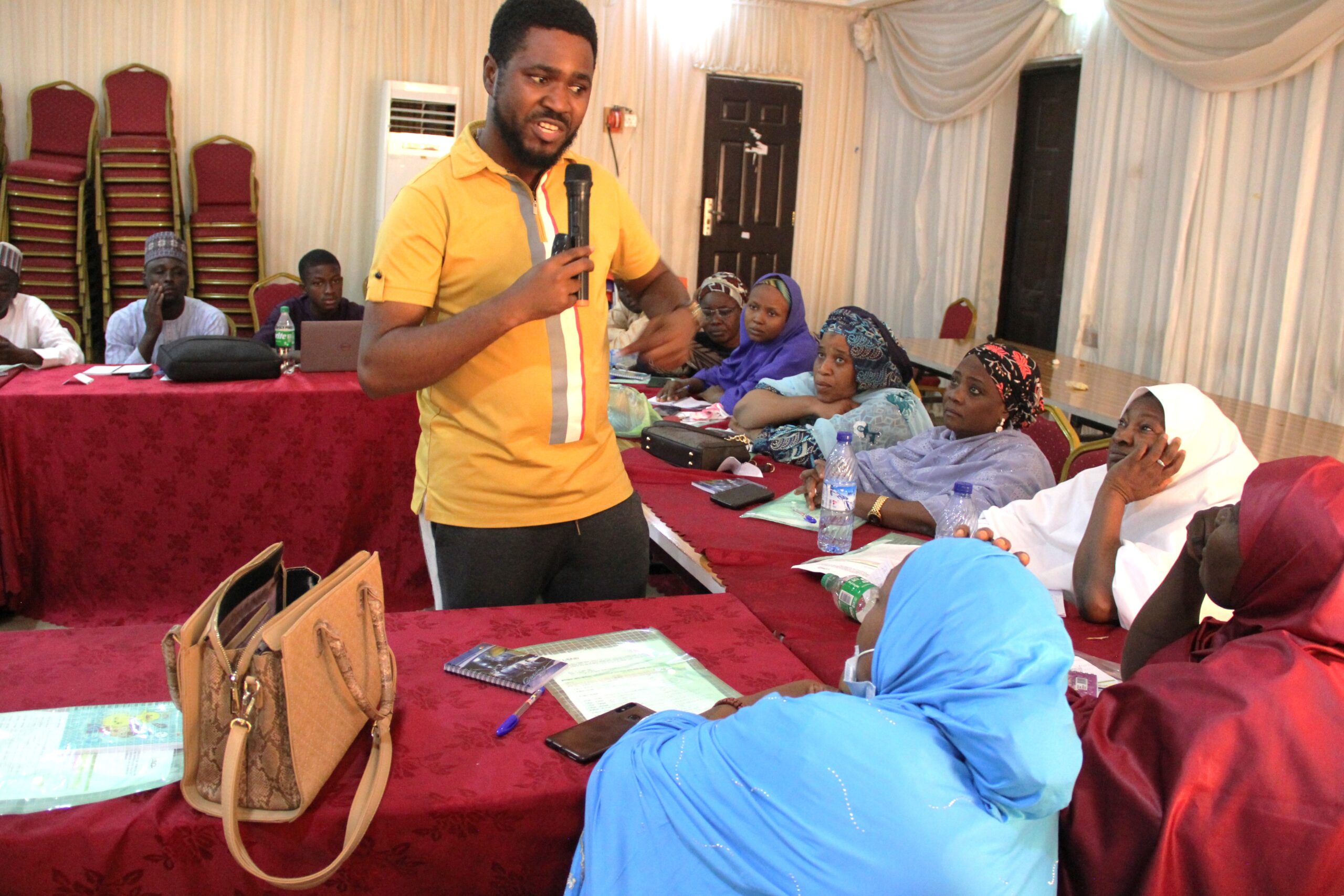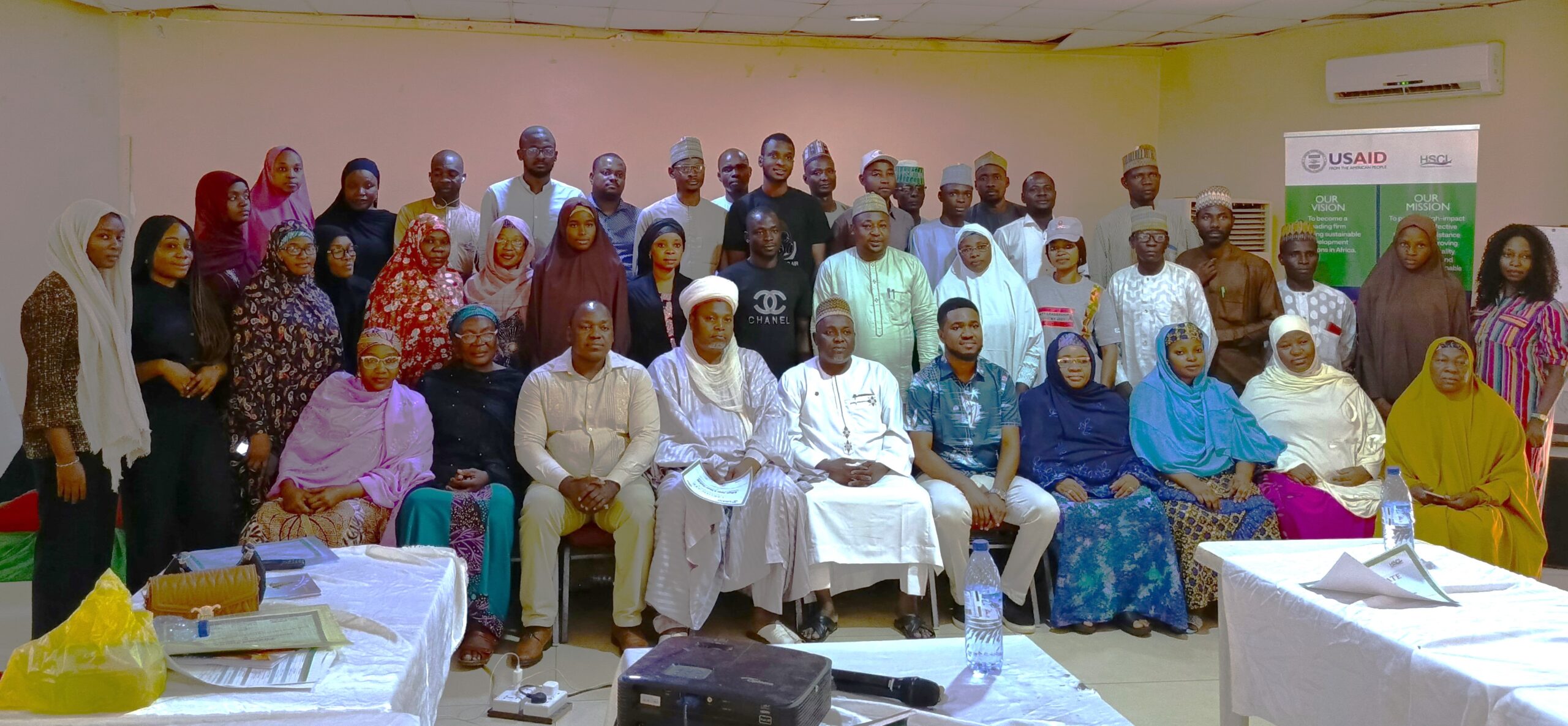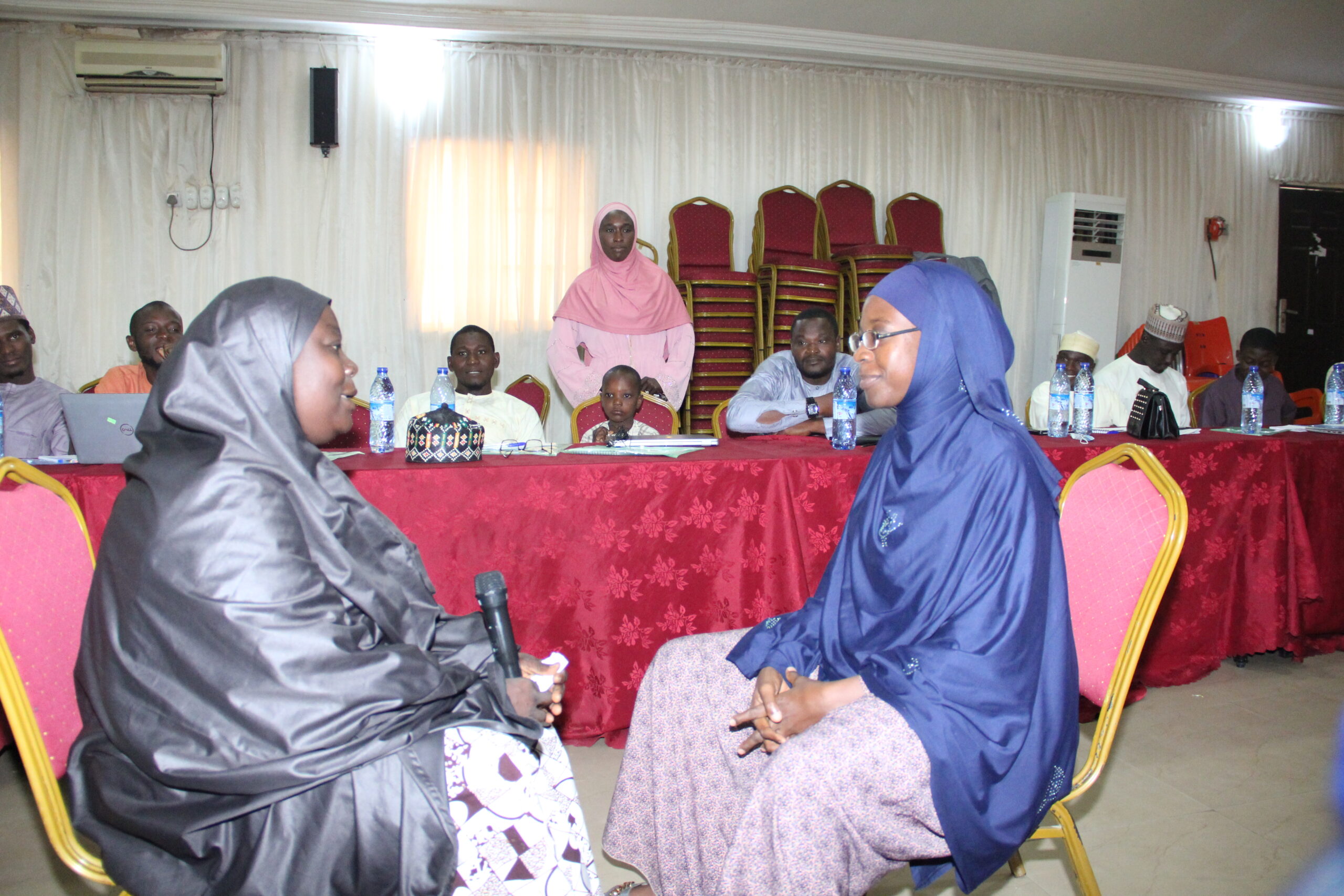HSCL ACE 3 PROJECT TRAINS STAKEHOLDERS ON GENDER BASED VIOLENCE SERVICES, REFERRAL AND REPORTING

HSCL ACE 3 Project recently completed a comprehensive training on gender-based violence services, referral pathway and reporting mechanism on national GBV dashboard for healthcare workers and community stakeholders in Sokoto state.
The 3-day capacity building workshop which had 51 participants in attendance was aimed at equipping the participants with the requisite skills in identifying and reporting GBV cases, strengthening the referral pathways and help all GBV actors in the state to work as a team, improving GBV surveillance and response systems and enhancing quality data reporting.
The participants were drawn from SACA, SASCP, National Clinical Mentor, Ministry of Women and Children’s Affairs, Sexual Assault Centre, State GBV response team, DEC, GBV FP, GBV Case Managers, CBOs and HSCL ACE 3 Staff.

Gender-based violence is rooted in gender-related power differences and characterized by the use and abuse of physical, emotional, or financial power and control. According to USAID, HIV and GBV are mutually reinforcing epidemics and People living with HIV are vulnerable to GBV, which can negatively impact HIV treatment outcomes.
GBV is an integral component of HIV programming in the ACE3 supported states, necessitating the 3-day capacity building exercise.
In his opening remarks, the Executive secretary of SACA Kabiru Umar Sokoto commended the efforts of the healthcare workers and emphasized the need for synergy as GBV services require harmonized collaboration among service providers.
In his goodwill message, the representative of the Sultanate Council, Sokoto state, Alhaji Sani Umar Tabbi expressed appreciation for PEPFAR, USAID on the positive impact of the ACE3 project in the state while also expressing his optimism that Gender Based Violence will be greatly reduced in the state in no distant time.
Highlights of the event included presentations on Emerging Issues, Gender Concept, and Inter-personnel Communication Skills. Other sessions were on Case Identification and Routine Inquiries and Providing First Line Support, Violence Against Women as Public Health Problem and GBV Service Delivery, Gender Mainstreaming and Importance of Gender in HIV programming, National GBV reporting tools and data reporting on a national GBV platform.

The training equipped the participants with the essential skills and knowledge to effectively address gender-based violence. They now have better understanding of the gender dynamics, a skill they need to make meaningful difference in providing support to survivors, advocating for awareness, and collaborating to promote gender equality. This is a significant step in enhancing GBV prevention and response efforts and fostering safer and more inclusive environments for all individuals.
Expressing his gratitude to USAID and HSCL for their excellent work on the ACE3 project, the Permanent Secretary, Ministry of Women and Children Affairs in Sokoto state, Hon. Hayatu Alhaji also thanked the participants for their active engagement during the training. He emphasized their crucial roles as healthcare providers in identifying, supporting, and advocating for survivors of gender-based violence.
The Perm Sec. stressed the importance of collaboration with other sectors to address the root causes of GBV and expressed hope that the knowledge and skills gained from the training would be vital in creating a supportive healthcare environment.
Recognizing the importance of gender mainstreaming in HSCL’s programming, the training has been cascaded to the 2 other ACE 3 states of Kebbi and Zamfara.







